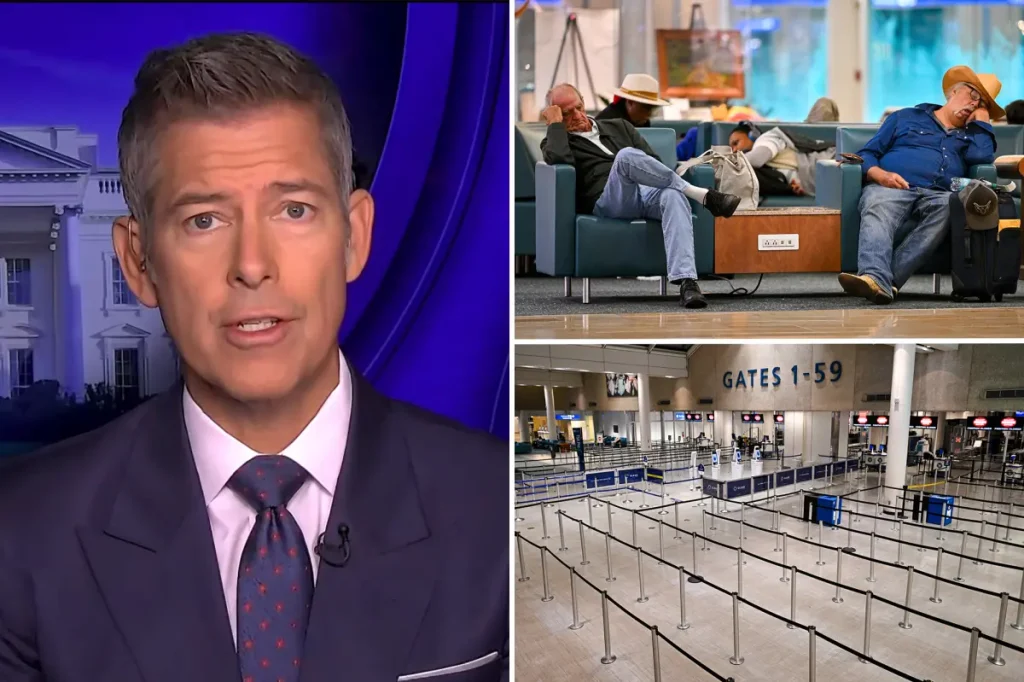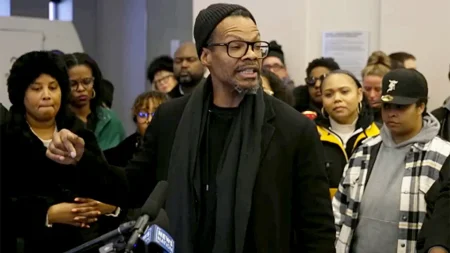Transportation Crisis: How the Government Shutdown is Affecting Air Travel
As the government shutdown enters its fifth week, the effects on air travel across the United States are becoming increasingly severe. Transportation Secretary Sean Duffy delivered a sobering message on CBS News’s “Face the Nation,” warning that airport delays are “going to get worse” as the situation continues. The nation’s air traffic controllers remain unpaid, creating a cascade of problems throughout the transportation system. Major hubs including Los Angeles, Dallas, Washington D.C., Boston, and Atlanta have already experienced significant disruptions, with no end in sight. This troubling development comes just weeks before Thanksgiving, traditionally one of the busiest travel periods of the year, raising concerns about potential holiday travel chaos if the shutdown isn’t resolved quickly.
The real-world impact of these staffing shortages became evident this weekend as major transportation hubs experienced substantial delays. Newark Liberty International Airport suffered a nearly four-hour backup and ground stop on Sunday, while Los Angeles International Airport and San Diego International Airport reported one-hour delays due to staffing shortfalls. These disruptions represent more than just inconveniences—they reflect a system under increasing strain as air traffic controllers face difficult personal choices. Many controllers are confronting impossible decisions: go to work without pay or call in sick to seek temporary employment that actually provides compensation. The human toll is mounting as these essential workers struggle to balance their dedication to public safety with their own families’ financial needs.
Secretary Duffy struck a compassionate tone when discussing the plight of air traffic controllers, acknowledging the genuine hardship they face. “They don’t make a lot of money, and they’re now confronted; they haven’t had a paycheck for over a month,” he explained. “They’re confronted with a decision: do I put food on my kids’ table, do I put gas in the car, do I pay my rent, or do I go to work and not get paid?” This recognition marks a shift from his previous stance, where he had suggested controllers who skip work due to missing pay might face termination. His current position emphasizes support rather than punishment: “I’m not going to fire air traffic controllers… They need support, they need money, they need a paycheck. They don’t need to be fired.”
Despite the growing challenges, Duffy assured the public that safety remains the absolute priority. He stated firmly that the government would “stop traffic” if staffing shortages ever threatened flight safety, though he quickly added, “we’re not going to let that happen.” This commitment to safety comes with a poignant recognition of the unique value air traffic controllers bring to American aviation: “We don’t have the best equipment in our towers and centers for air traffic control. But we have the safest airspace, we have the most efficient airspace because we have the best controllers in the world that work our skies and keep our people safe.” The statement underscores a troubling irony—the nation depends on these professionals for safe air travel while failing to provide their basic compensation.
The air traffic control crisis represents just one facet of the broader shutdown impact that began on October 1st. Beyond airports, the shutdown has disrupted federal food assistance programs and numerous other government services that millions of Americans rely upon daily. The situation creates a particularly acute problem for air travel because of its immediate safety implications and the specialized nature of air traffic control work. Controllers undergo years of intensive training and certification, making them essentially irreplaceable in the short term. As more controllers face financial breaking points, the system’s redundancies and safety margins gradually erode, creating potential vulnerabilities in what has historically been the world’s safest airspace.
As the shutdown continues with no immediate resolution in sight, the aviation system faces a critical test of resilience. The coming weeks will determine whether the fragile balance between safety, staffing, and service can be maintained under unprecedented pressure. While Secretary Duffy and other officials work to provide reassurances, the fundamental problem remains unaddressed: essential workers cannot indefinitely continue performing critical safety functions without compensation. The approaching Thanksgiving holiday will likely serve as both a stress test for the beleaguered system and a deadline of sorts for finding solutions. Until then, air travelers should prepare for potentially significant disruptions while understanding that the controllers guiding their flights safely through the skies are doing so despite extraordinary personal sacrifice during this prolonged government shutdown.








